Phase 3 at Leigh Academy Milestone supports students in Years 7-11 (aged 11-16 years old). We have 8 classes based on our main site, and a further 3 classes of students based at our Satellite provision, Milestone @ at the Leigh Academy (M@L).
The Phase 3 curriculum for classes on the main site encompasses four learning pathways: Brook, Stream, River and Waterfall, allowing for each student to access a curriculum which meets their holistic learning needs.
All our pathways follow a three-year rolling program, which transcends the National Curriculum and links learning via a Transdisciplinary Theme. These themes, which vary by Pathway, form the core of our International Baccalaureate (IB) approach.
The scope and sequence of our Curriculum has been created in collaboration with families, staff and students, with the aim to provide appropriate, engaging and relevant vehicles for learning. Content is differentiated for each Pathway, yet allows collaboration and inclusion across the Phase.
The aim of the curriculum is to build upon the foundations created in Phases 1 and 2, or previous primary provisions, to continue to develop our students’ knowledge and skills, in preparation for the next steps in their education and as they approach adulthood.
As students enter the secondary phase of their education, there is a greater degree of emphasis on independence and functional skills as we aspire for our students to leave Leigh Academy Milestone as confident, successful and resilient, life-long learners, able to make a positive contribution to their community, while seeing their place in the wider world.
To complement our curriculum, the co-curriculum provides opportunities to generalise skills and further develop communication, cognitive, personal and social skills. These opportunities include lunch time clubs, and regular community participation, engaging outbound trips and visits, and inbound visits from members of the community, employers, and interesting speakers. This helps our students to build valuable cultural and social capital, and make clear links between their learning and the wider world.
Transdisciplinary learning provides our students with opportunities to make cognitive and skills-based links across all Curriculum subjects. These include: Maths, English, Religious Education, Humanities (History and Geography), Science, Careers, Computing, Physical Education and the Arts, as well as Community Integration, Active Citizenship and Personal, Social and Health Education. The curriculum is informed by the National Curriculum, and targeted knowledge and skills are extracted from the appropriate level. Where possible, content and themes are derived from the Curriculum for Key Stages 3 and 4. By promoting student agency, and a spirit of inquiry, learning is designed to reflect our students’ questions, their priorities, and their interests.
phase 3 curriculum
- Pupils accessing the Brook pathway experience profound and multiple learning difficulties. Therefore, they access an individual needs curriculum in which learning targets are interwoven into the pupils’ individual profiles across curriculum areas.
- Pupils may be at very early stages of development therefore it is most appropriate for them to access an individualised curriculum using individual learning plans (ILPs).
- Pupils follow the Brook curriculum framework which is a target setting, assessment and monitoring tool.
- The Brook curriculum framework offers a specialised curriculum in five key skill Areas: Communication, Cognitive Skills, Environmental Control Technology, Social and Emotional Well Being and Physical Skills (Gross and Fine Motor).
- Planning is pupil centred with all targets within a pupil’s ILP developed from the Brook Curriculum framework and in collaboration with Specialist Teaching Services (HI, VI, MSI, Physiotherapist, Occupational) and therapists where appropriate. Parents are invited to contribute to target areas.
- To further enrich learning and support generalisation of skills, students are taught via a three-year transdisciplinary curriculum framework based on the National Curriculum, highly adapted to meet the individual needs of each student.
- Curriculum planning is built around a Transdisciplinary Theme and a strong central idea, enabling students to learn about themselves, other people, and the world around them across a wide range of lines of inquiry.
- Each Pathway follows the same Transdisciplinary Theme. In the Brook pathway, this is incorporated through rich and sensory based learning experiences.
- Learning is inquiry-based, promoting curiosity and enabling a culture of student agency, where students can influence the direction of their learning through exploration and experimentation.
- Sensory activities allow for highly motivating learning engagements and experiences, and enable students to make their own inquiries.
- Based on individual pupil needs, pupils can access specialist learning environments and experiences such as Aqua Learn, interactive room, soft play, Rebound therapy, Rainbow room and therapy room.
- Individual needs such as therapy programs, personal and medical needs are prioritised which ensures that students are ready to learn and achieve.
- Students in Phase 3 take part in specialist lessons including Physical Education, Art, Performing Arts and Science
- Students are taught via a three-year transdisciplinary curriculum framework based on the National Curriculum, highly adapted to meet the individual needs of each student
- Throughout the course of the Academic Year, students learn via two Transdisciplinary Themes, which provide a strong foundation for learning about themselves and the world around them
- Engaging central ideas form the basis of student-driven lines of inquiry, which inform Individual Learning Plans
- Individual Learning Plans are tailored to teach student, enabling growth in the key areas of: Cognition, Communication, Functional Skills, Self-Help, Fine and Gross Motor Skills, and Social Skills
- Students will develop their Literacy skills including reading, writing, and expressive/receptive communication.
- Numeracy skill form a core of the Stream curriculum, promoting counting and cardinality, comparison, composition, shape, space, pattern and measure
- An emphasis on independence and functional skills provides planned-for opportunities for students to embed valuable life skills alongside academic learning, promoting personal care and hygiene, self-help skills, decision-making and communicating clear preferences
- Learning engagements lead to actions. Students are encouraged to be active participants in their learning and explore ways to contribute to their communities. This might include community visits, projects in the local area, or supporting within the school community.
- Students access a range of learning environments, enabling them to generalise and embed knowledge and skills across a variety of contexts
- Students are taught via a three-year transdisciplinary curriculum framework based on the National Curriculum, providing the basis for all content and knowledge, as well as the sequence of skills, and has been highly adapted to meet the needs of each individual student
- Three Transdisciplinary Themes over the course of an Academic Year form the basis for student learning, where each is made real and relevant by a strong Central Idea.
- Each Central Idea is explored through various lines of inquiry, enabling students to engage with a wide range of learning opportunities including functional skills, knowledge acquisition and skills development.
- Learning is inquiry-based, promoting curiosity and critical thinking, and enabling a culture of student agency, where students can influence the direction of their learning through questioning, exploration and experimentation.
- Learning engagements lead to actions. Students are encouraged to be active participants in their learning and explore ways to contribute to their communities. This can involve things like organising events, starting clubs, or making lifestyle choices that promote sustainability.
- Teaching and learning is sensitive to the needs of each individual, while teamwork and collaboration are promoted as essential elements of learning
- Students will all participate in phonics-based reading instruction where appropriate. (Alternative reading and decoding strategies are in place for students as necessary).
- While both literacy and numeracy skills development is embedded across the curriculum, students will develop specific skills in both English and maths
- All students will learn via a transdisciplinary curriculum framework based on an adapted or highly-adapted National Curriculum, which provides the basis for all taught content and knowledge, as well as the sequence of skills
- Three Transdisciplinary Themes over the course of an Academic Year form the basis for student learning, where each is made real and relevant by a strong Central Idea.
- Each Central Idea is made real and relevant through co-developed lines of inquiry. These lines of inquiry represent student questions and areas of interest, as well as teacher-led explorations.
- An inquiry-based culture of learning promotes curiosity and critical thinking, while fostering student agency, where students influence the direction of their learning through questioning, experimentation and exploration.
- Learning engagements lead to actions. Students are encouraged to be active participants in their learning and explore ways to contribute to their communities.
- Teaching and learning is sensitive to each individual, and all learning is highly adapted.
- Teamwork and collaboration are integral skills.
- Students will all participate in phonics-based reading instruction where appropriate. (Alternative reading and decoding strategies are in place for students as necessary).
- While both literacy and numeracy skills development is embedded across the curriculum, students will develop specific skills in both English and maths
Milestone @ The Leigh (Waterfall Pathway)
The classes at Milestone @ The Leigh follow the Waterfall learning pathway. As with all our classes, we aim to provide a rich learning experience, underpinned by the values of independence, curiosity, self-confidence and community engagement. Pupils who attend the M@L satellite are expected to encounter challenges, and with increasing levels of self-sufficiency, overcome those challenges.
We strive to provide a personalised, individualised experience for our pupils, where they can confidently help direct how and what they learn. We want pupils to understand how they are connected with the world around them.



